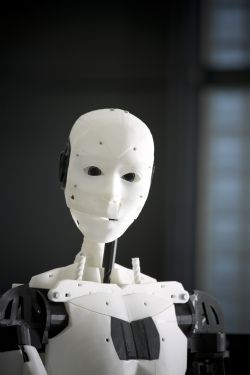
And the answer is no. In fact the introduction of robots in workplaces is said to create about 133m new jobs globally, because although robots can do lots for the workplace there will always be a need for humans.
For example, to build the robots to start with and once they’ve been built to monitor and supervise them. For the amount of robots created there also needs to be an adequate amount of supervisors, therefore creating more jobs.
The main reasons these robots have been integrated into the work place is to aid in labour-intensive industries.
How have robots helped in the workplace so far?
Robots have been able to improve the accuracy and precision in the creation of goods, which helps to eliminate waste for companies. As the robots are programmed to work and are less likely to make the mistakes that humans do.
Robots will also be able to speed up the rate at which goods are being produced , as they generally work faster but also cut back on the time wasted during breaks or holidays. Robots have also been able to make the workplace safer for employees as they can carry out the more dangerous jobs, such as operating heavy machinery.
Apart from factory based robots, there has also been an introduction of robots into more corporate sectors. For example in Sweden, where there has been the development of the robot Tengai to aid with interviews and specifically make them unbiased to reduce anxiety for interviewees.
More locally, The Collection Museum has also introduced a robot into their premises to help guide guests around the museum which allows staff to focus on serving customers at the gift shop or in the café.